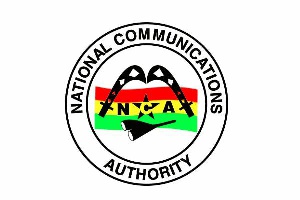Abuja, March 20, GNA - The General Secretary of Nigeria's Labour Congress, Mr John Odah has called on breakaway unions from the Ghana's Trade Union Congress (TUC) to consider coming back together as a unified union.
"As workers, we need to come together to get one voice when it comes to dealing with government and we will not be able to achieve that if there is disintegration".
Mr Odah made the call at a three-day sub-regional Global Unions Coordinating meeting on HIV and AIDS in Abuja, Nigeria organized by Global Unions in collaboration with the Nigeria Labour Congress. The meeting is being attended by about 21 participants drawn from the various trade unions in Ghana and Nigeria.
Participants are discussing trade unions in the two countries and their activities in the fight against HIV and AIDS, Global Union Funds and national centres on HIV and AIDS, mainstreaming HIV activities at the national, organizational and workplace levels as well as establishing and agreeing on the needed guidelines and measurement criteria to achieve the goals in the fight against HIV and AIDS. Mr Odah explained that the breakaway of Ghana's Industrial and Commercial Workers Union (ICU) Ghana came as a shock to the other trade unions in the sub region, adding, 93We saw the unity in the trade union in Ghana as a shinning example that other trade unions in the sub region are replicating until the news of the breakaway came".
He also entreated the Ghana National Association Teachers (GNAT) to also consider joining the TUC to enable them have a common voice and achieve a common goal for the betterment of their workers. Mr Odah said HIV had a great impact on the world's work by reducing skills and productivity whilst stigmatization and discrimination against such workers threatened their rights and jobs. Millions of people in the sub-region are living with HIV and AIDS with most of them being workers.
He said Trade Unions were the key actors at the workplace and were well placed to help fight the epidemic through advocating for increase in funds for HIV activities as well as lobbying for affordable prices of Antiretroviral drugs and the development of policies and programmes for prevention; treatment, care and protection of their rights.
Mr Odah urged Global Unions to work with employers, the International Labour Organisation and other bodies to establish inter-national standards and guidelines to protect rights and promote action.
Mrs Clementine Dehwe Global Unions HIV and AIDS Coordinator for the Public Services International Office said Unions around the world had responded to the HIV and AIDS epidemic and had agreed to join forces in order to bring the combined strength of their mass organization into the global struggle.
She noted that the Global Unions have a goal of making HIV and AIDS a priority for all trade unions, develop partnerships with relevant organizations at all levels, mobilize resources and help trade unions to take actions in their own organizations and the workplace.
She urged the various trade unions to protect the rights of the people at their workplace against stigma, discrimination, compulsory testing and dismissal. They should also support behavioural change, develop HIV agreements with employers by putting in place policies and programmes at workplaces in both the public and private sectors. "You can also help reduce risk by promoting occupational safety and health and address social, economic and political factors that increase risk; promote access to care and treatment and encourage people to test in an atmosphere of trust and non-discrimination.
You should work with employers and governments to include strategies for the workplace in national HIV and AIDS plans and ensure that HIV and AIDS is on the agenda of every trade union", she advised. Mrs Dehwe pledged Global Unions AIDS Programmes continuous support for activities at the various country level, mainstream HIV and AIDS in labour=91s sustainable development, gender and youth agendas among other initiatives.
Mr Daniel Owusu Boatey, Occupational Safety and Environment/ HIV and AIDS Desk Officer of Ghana's TUC who gave the country's situation report said the main objectives of the organized labour were to eliminate prejudice and discrimination from the workplace, establish safe and healthy working conditions and provide basic health care for labour members.
He noted that the Union had developed HIV and AIDS Policy, included in the Collective Bargaining Agreements, developed policies, developed HIV and AIDS curriculum and was being taught as a subject at the labour training institution.
Mr Boatey explained that despite the achievements, the Union was faced with challenges such as lack of commitment on the part of organized labour, non recognition of the HIV and AIDS Desk, lack of funding to continue with the education and training for workers and employers as well as their families at the workplace and communities. He however cautioned that HIV and AIDS was a threat to organized labour and not withstanding the decline in the prevalence from 3.1 per cent to 2.7 per cent, it should be seen as a great challenge to ensure its further reduction.
"It should also be seen as an opportunity for all stakeholders to initiate and sustain all local projects to further reduce the prevalence".
In an interview with the Ghana News Agency (GNA) on the breakaway, Mr Boatey explained that there was always a way of settling differences and since as workers 93we agree and disagree, I believe in the saying; United we stand divided we fall and ICU should consider coming back so we can have one unified body with a common voice so we can achieve a common goal". Ms Helena Awurusa HIV and AIDS Coordinator of GNAT criticised the new Labour Law that allowed even two people to form a union saying it was not too good for unionism and called for a second look at that law. 20 March 07
Health News of Tuesday, 20 March 2007
Source: GNA
















